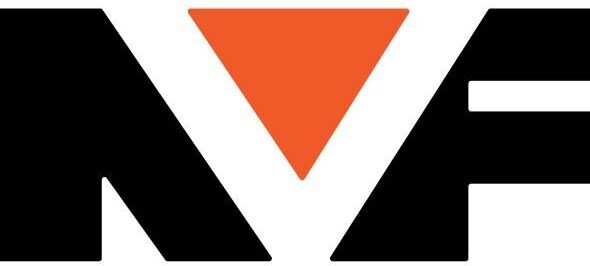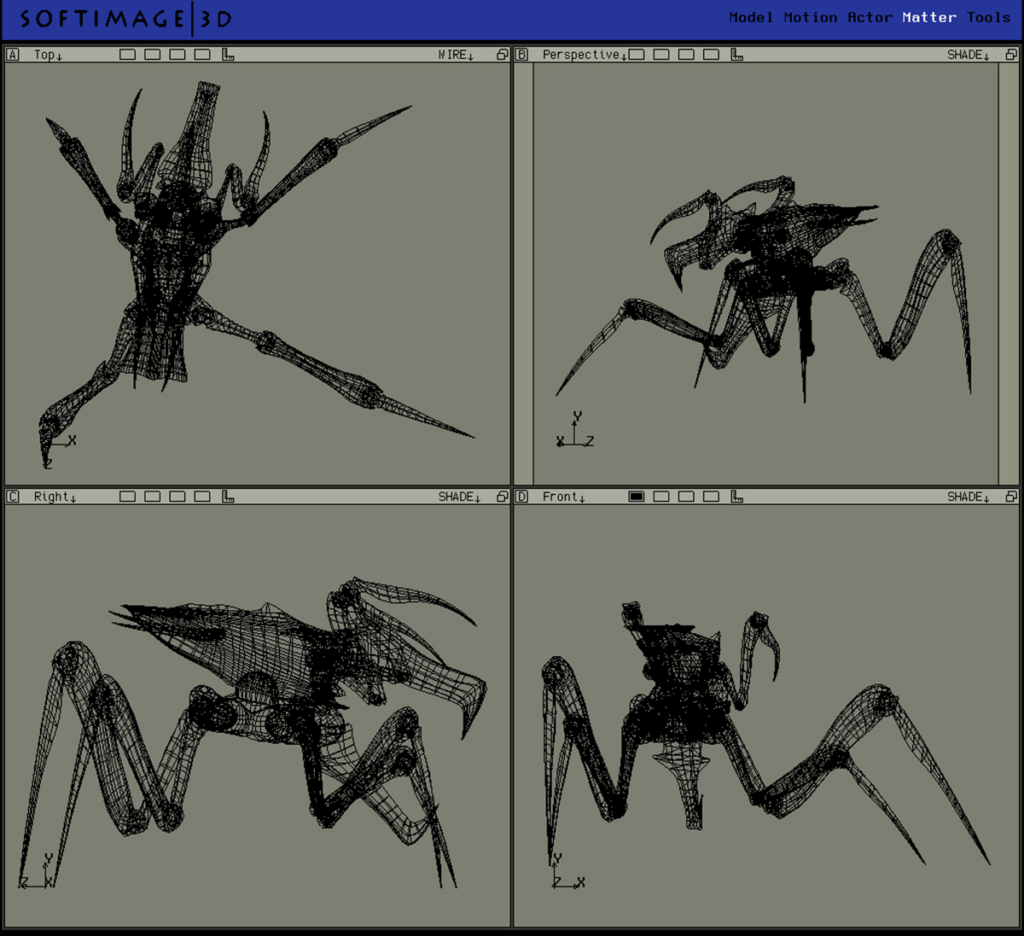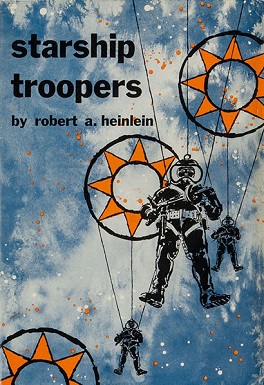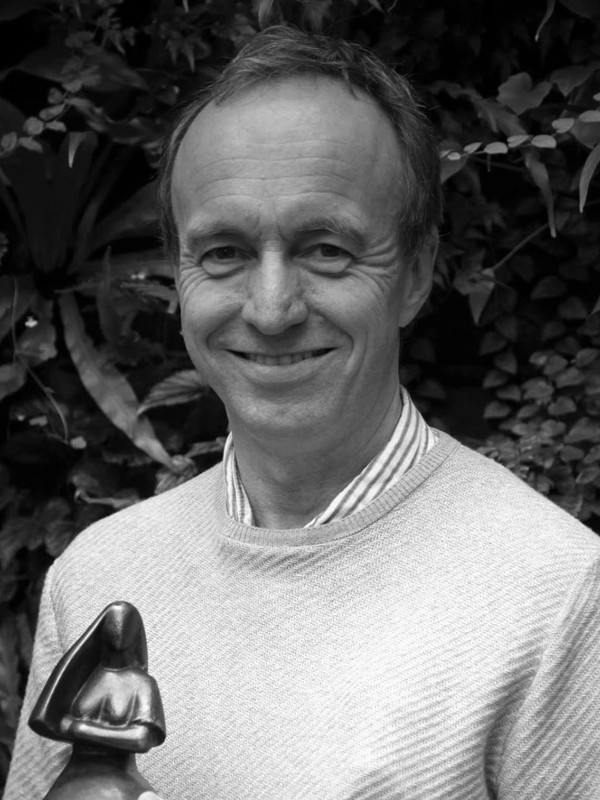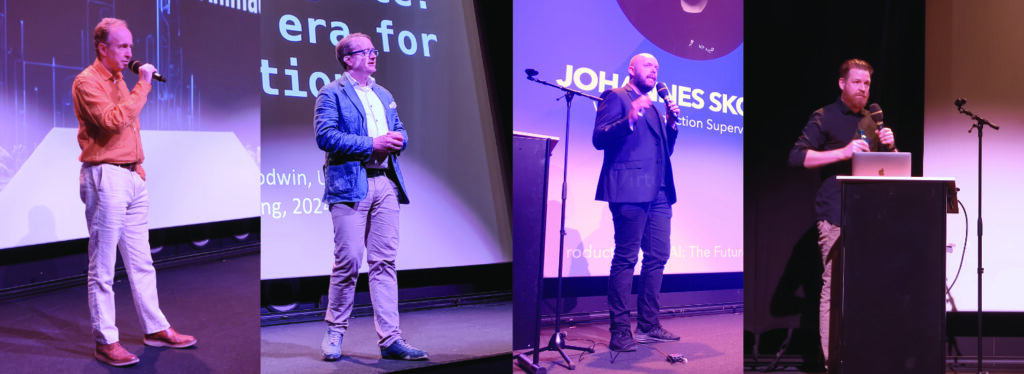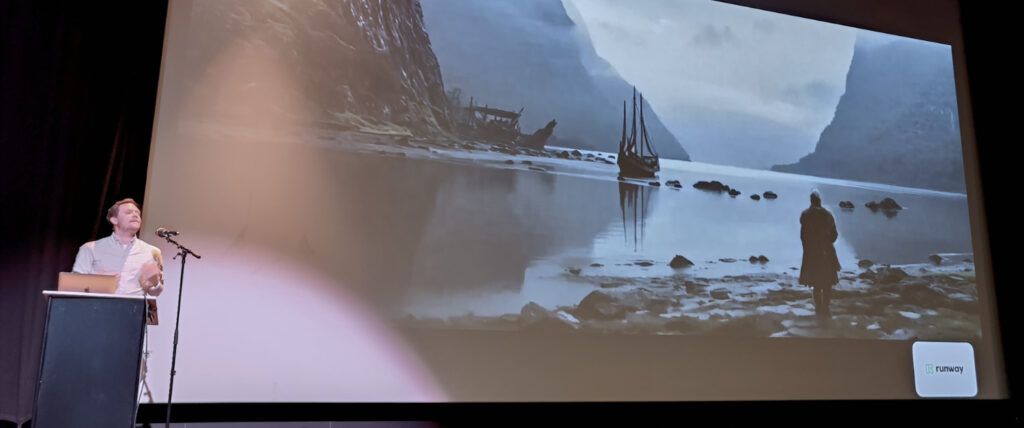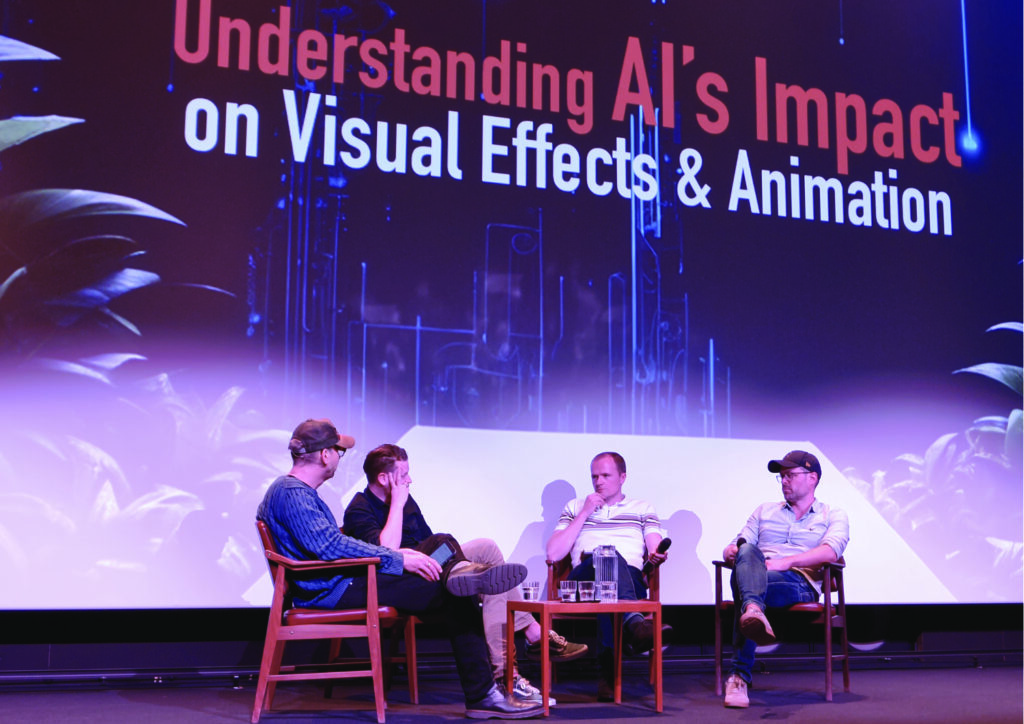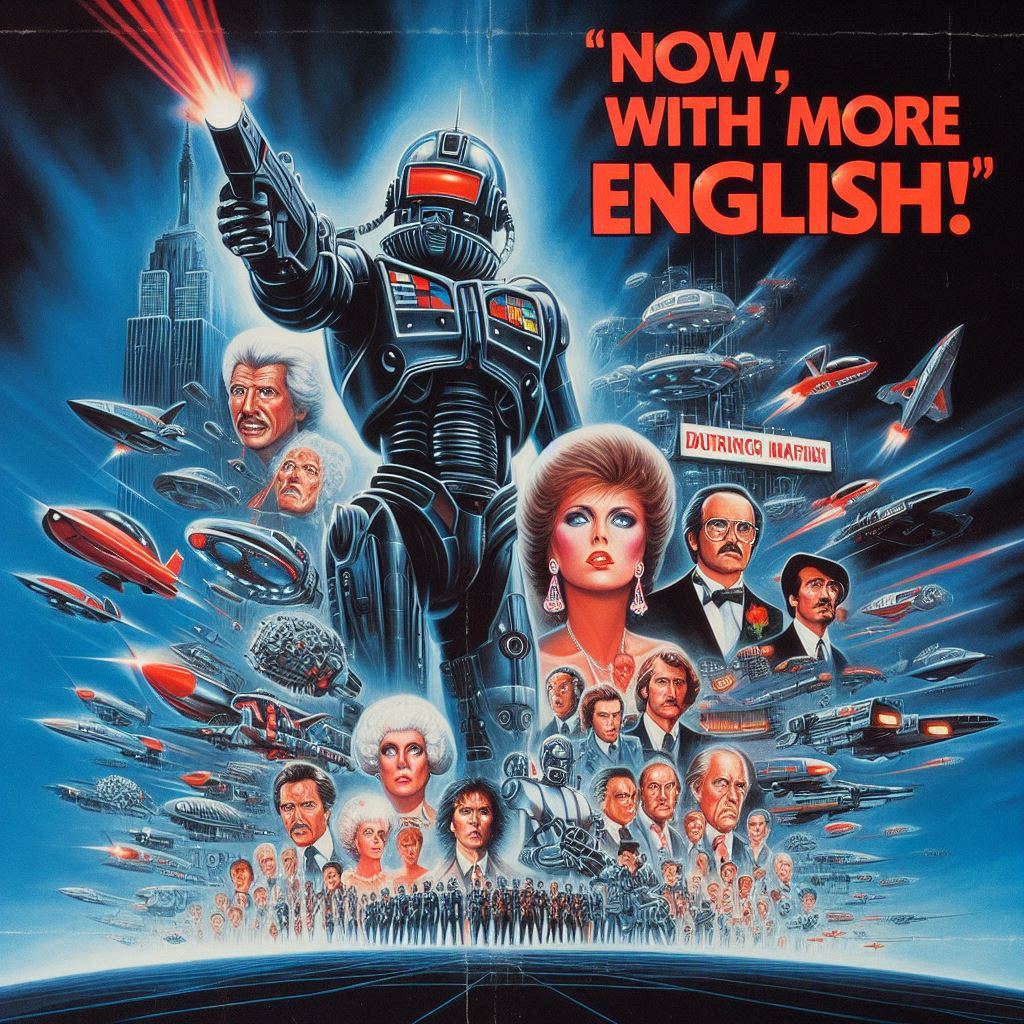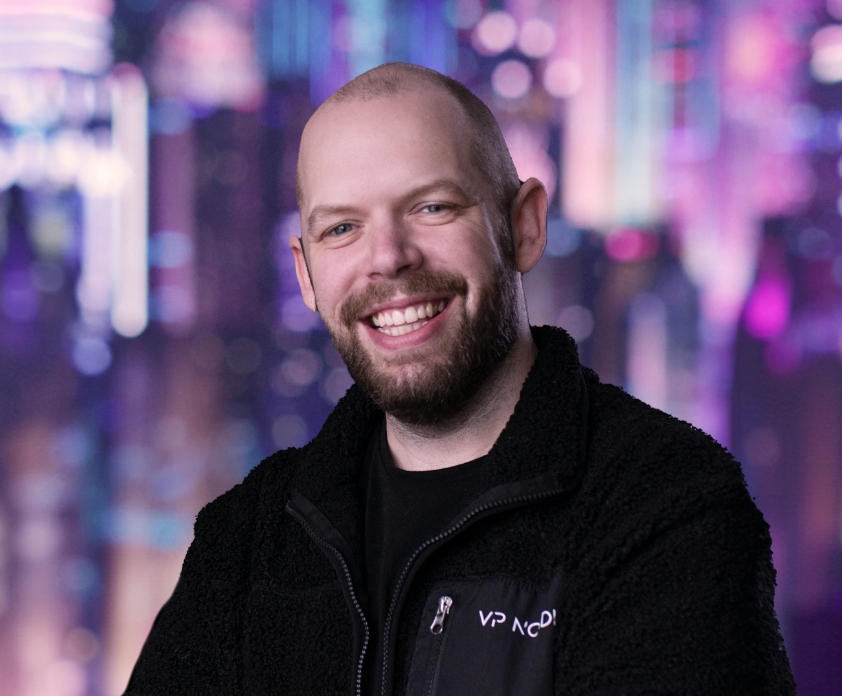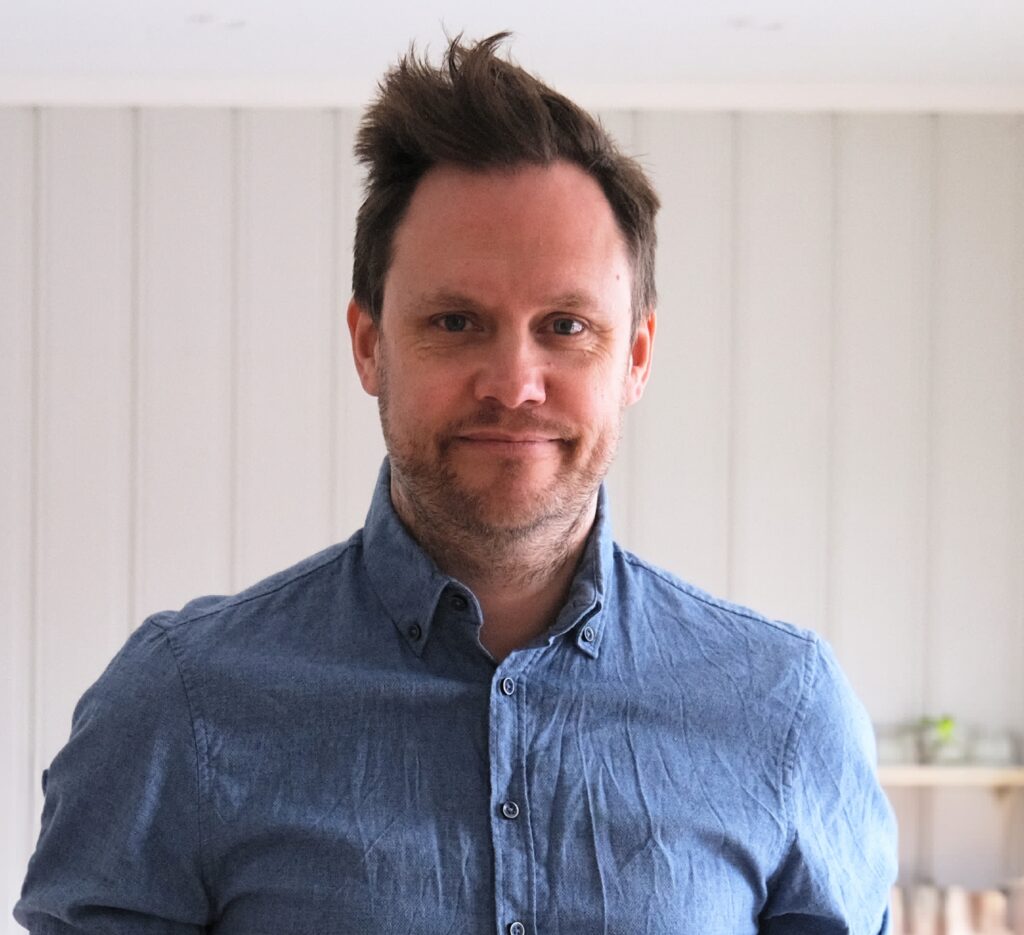A Glimpse from FMX 2025 with Morten Moen
In May this year, Morten Moen, Associate Professor at Kristiania University College, attended the renowned FMX conference in Stuttgart – a leading gathering for professionals in visual effects (VFX), animation, and immersive media. Together with five colleagues, he represented the research project Kontroll AI, which explores how artificial intelligence can be integrated into creative production workflows – without losing human control.

AI in Production: Between Control and Creativity
AI was a red-hot topic at this year’s conference, and it quickly became clear that both academic and industry professionals are grappling with the same questions: How do we maintain creative control when using AI? And how can we use AI as a tool – rather than a replacement for human-made art, expression, and innovation?
According to Moen, for many, the solution is not to generate full videos using AI, but to use the tools to develop CG assets and then move forward using the traditional production pipeline. The big ethical dilemma with AI-generated content remains: Can it truly be considered art, or is it just a copy of a copy of a copy?
– “There’s something a little sad about the creative process disappearing,” says Moen. “For us, it’s about finding methodologies that allow us to stay in control and preserve creativity. We’re not interested in rolling the dice and getting a random set of images back — we want to shape a deliberate artistic expression.”
A New Focus on “Computer Arts”
Kristiania University College also had its own stand at FMX, where they presented a new bachelor’s program in Computer Arts. The program combines elements from VFX, 3D graphics, animation, and game design, and now embraces a broader international perspective. The university’s goal is to attract international students, something Moen is optimistic about. The first semester will see 60 to 80 students start together, with the program branching out in the second semester to allow students to specialize and follow their individual paths.
A new master’s program in Media Arts is also on the way.
– We’re already seeing interest from international students, which is exciting. At the same time, we’re working on translating our curriculum and VFX compendium into English to make it accessible to everyone, Moen explains.
An Industry in Flux
One of the most engaging debates at the conference focused on the current state of the VFX industry. Participants included Scott Ross, former CEO of Industrial Light & Magic, senior VP at Lucasfilm, and founder of Digital Domain, as well as David Li, chairman of Dream Machine and the world’s most active VFX investor. Li presented an overwhelmingly optimistic view of the industry’s future, especially in relation to AI, while Ross maintained that the industry has always been bad and always will be. (paraphrasing -Moen)
Joseph Bell showcased the site vfxAtlas.com, presenting data and statistics that highlighted both decline and emerging opportunities. Statistics that lie freely available as a pdf on his website for interested parties.
– “We’ve seen closures among some major players, while virtual production (VP) is gaining attention. Interestingly, it now seems that the education sector is the main driving force behind VP, rather than the commercial market. Commercial use is seeing a downward trend,” says Moen.
AI as a Tool – Not a Replacement
Moen emphasizes that, as of now, AI works best as a tool, not as a replacement for creative professionals.
– “We use AI, but only for specific parts of the process.
There’s still a strong need for people who can think, shape, and create. What we want is for our students to find jobs where they do more than just write prompts.”
However, he acknowledges that some job categories, such as rotoscoping, may disappear or be drastically reshaped in the near future.
– “It’s hard to predict, and the development moves fast. It’s crucial that we prepare our students for a flexible future where technology changes rapidly – but where their insight and creativity still hold great value.”
All impressions from FMX mentioned above are Moen’s own.
This interview was conducted and written in Norwegian and translated with the help of chatGPT.
